HRK 3.5m Set Aside for Croatian Diaspora Projects For This Year
ZAGREB, 6 Sept 2021 - Croatia has set aside HRK 3.5 million (€467,000) for this year to support projects by Croatian diaspora organizations in 29 overseas and European countries.
Grants will be awarded based on a tender issued by the Central State Office for Croats Abroad. Applications are accepted by 1 October.
Diaspora organizations are invited to submit projects of importance to their development, culture, education, science, sports, and tourism, as well as those that contribute to the preservation of the national identity and promote relations between the diaspora and Croatia.
One organization can submit not more than two projects or programs, and grants range between HRK 5,000 (€667) and 80,000 (€1,067) per project.
For more about the Croatian Diaspora, visit our dedicated page here.
Croatian Diaspora in South America: The Story of Nadia from Argentina
June 17, 2021 - Reuniting with your Croatian ancestry can go in many ways. Many of the Croatian diaspora in South America tirelessly seek to trace their roots, and several of them without success. The chances of accidentally meeting your distant relatives are always low, but this is what surprisingly happened to Nadia from Argentina.
Every year, lists are written in media and blogs everywhere to rank Croatian destinations, facts, and people, but I don't know if it has occurred to anyone before that Croatia, in addition to its beaches, its islands, its nature, its Roman, Venetian, Austro-Hungarian, and Yugoslav heritage, its geniuses (both in science and sport) and more, Croatia could also be known for its surprises. It is true that being Croatian, of Croatian descent, or living in Croatia can surprise one on various occasions, and not always in a negative way.
Of course, there are known surprises that one can get when going to the police station to carry out a procedure, or when sitting at the table of a Croatian family at lunch, or after a rakija tasting. But some of its most interesting events happen when reconnecting with your Croatian ancestry. Not only through my own experience, but I know of many, many people over the years who have failed to find out more about their ancestors rather than the simple fact that they were Croats.
As the years go by, it becomes more difficult to connect the evidence that one finds to solve numerous questions such as the year their ancestor was born, where they were born, when did they leave Croatia, why did they leave Croatia, what did they do while living there, what did they do after arriving at their new country, and so on. This is very difficult to solve, especially for the large Croatian diaspora in South America, a distant continent in so many ways beyond what’s measurable. If there’s something I know, it is that one of the decisions that can facilitate this search is to return to the mother country. It is not a guarantee, but it can definitely bring you closer to the answer you are looking for.
But what if one is not looking for it? It does not mean that there is no type of interest, but precisely it ceases to be a priority when it becomes so difficult to know something about our origins. When you find something you were looking for, it always brings a pleasant sense of success and fulfillment. But when it is unexpected, the feeling of joy can be equal or even greater. This is what I thought when I first heard about Nadia's experience. But I feel like the story will feel more magical if it is shared through her own words. Meet Nadia Milevčić, a returnee from Argentina.
What country are you from and when were you born?
I am from Argentina, I was born in Buenos Aires in October 1994.
When did you know that you were of Croatian descent?
I can't give you an exact date because it's something I've known for as long as I can remember. Perhaps because of my last name, the fact of being of Croatian descent was always something very present. My dad's four grandparents were Croatians and he talks a lot about them and the things they taught him. My grandmother, daughter of Croats, used to speak to me in Croatian when my brother and I were young. She also told me about our family, about the city of Split in Dalmacija, and about the history of Croatia as a country. For all these things, the Croatian heritage was very important in my family.
When did you decide to travel to Croatia and what motivated you?
In 2018 I started thinking about studying abroad because I wanted to have the experience of living in a totally different environment from mine. First I thought that this trip would be related to something in my career. At that time I had two years left to finish my Bachelor of Arts degree and I looked for some scholarships in other countries, but nothing appeared.
I started thinking about studying in Croatia when I went to the Buenos Aires embassy to find out how to begin the process of Croatian nationality and the woman who worked there told me about the Croaticum program. It seemed to me that the idea united my desire to live in a totally new place and also my desire to finally know that country that I had been told so much about. In March of that year, I began to work on my project and began to study Croatian in Buenos Aires while waiting for the opening of the call for the scholarship program. That year I applied but did not win. It was very disappointing, but later I understood that it was not yet my time to leave Argentina. In 2018 I also finished the annual Croatian course and continued to search for papers that could help me to prove my Croatian ancestry more clearly.
In 2019, the last year of my degree, I applied for the scholarship again and won it. That same year, a distant cousin of mine contacted me from Croatia saying that we were family. At that time my idea was not only to get to know the country of my great-grandparents and live in it for a while but also to reestablish the bond with the rest of my family in Croatia, of whom I did not know any of them.
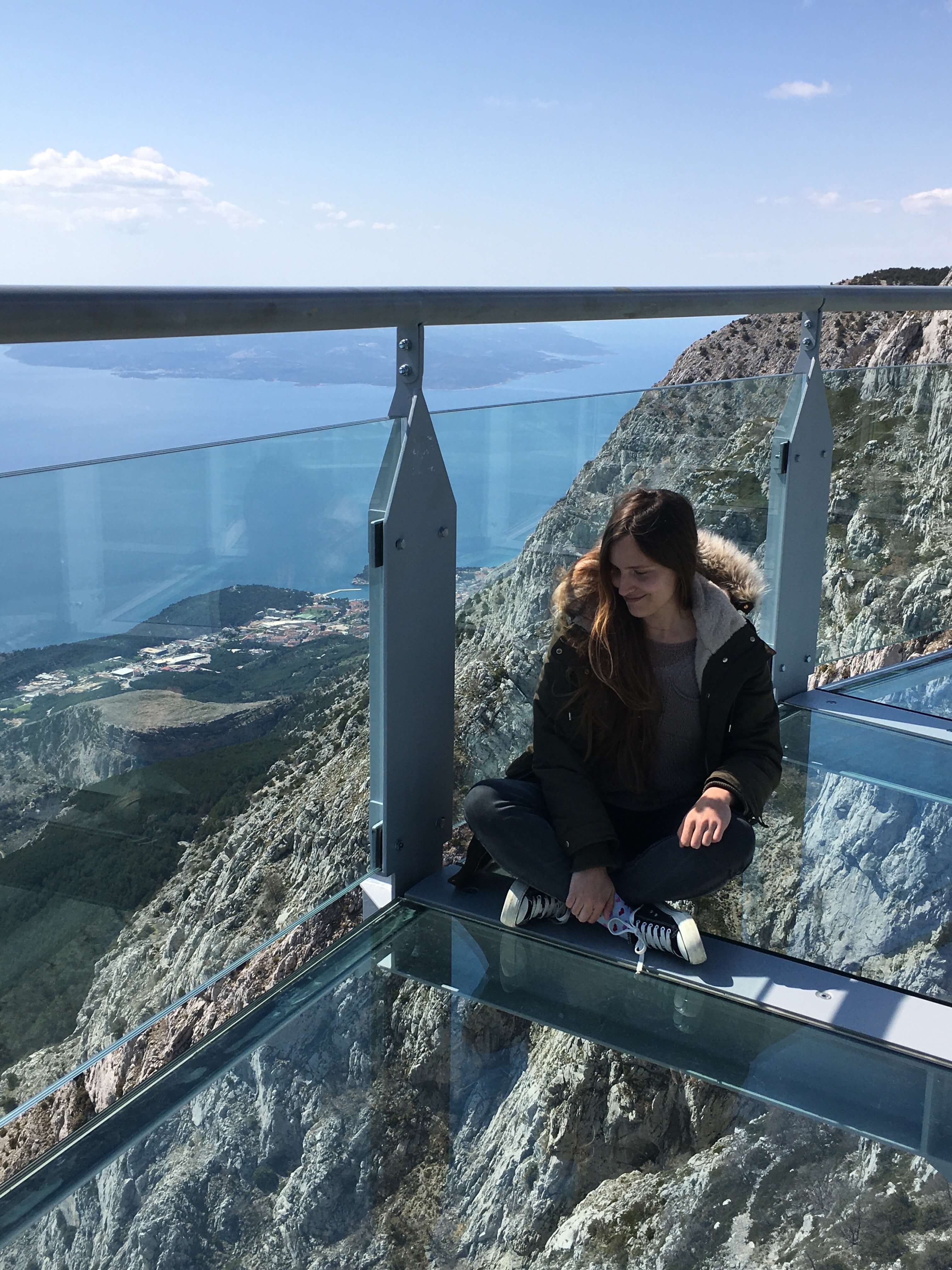
Nadia on the popular Biokovo Skywalk, the same day she met her distant Croatian relatives. (Personal album)
What was your impression when you first arrived?
My first impression of Croatia was that everything was very beautiful and that the people were very friendly. When I met my cousins they seemed to me to be very open and very loving people. The first month I was delighted with everything I saw, it seemed to me that everything was very organized and I felt very safe.
How did that impression evolve over time?
After living here for a year and having moved several times, I also began to see the negative side. All countries have something good and something bad, it is normal. There are things that I don't like and I think that's part of living in the reality of a country and getting out of that stage of infatuation in which I was at the beginning. Now I have a more realistic impression.
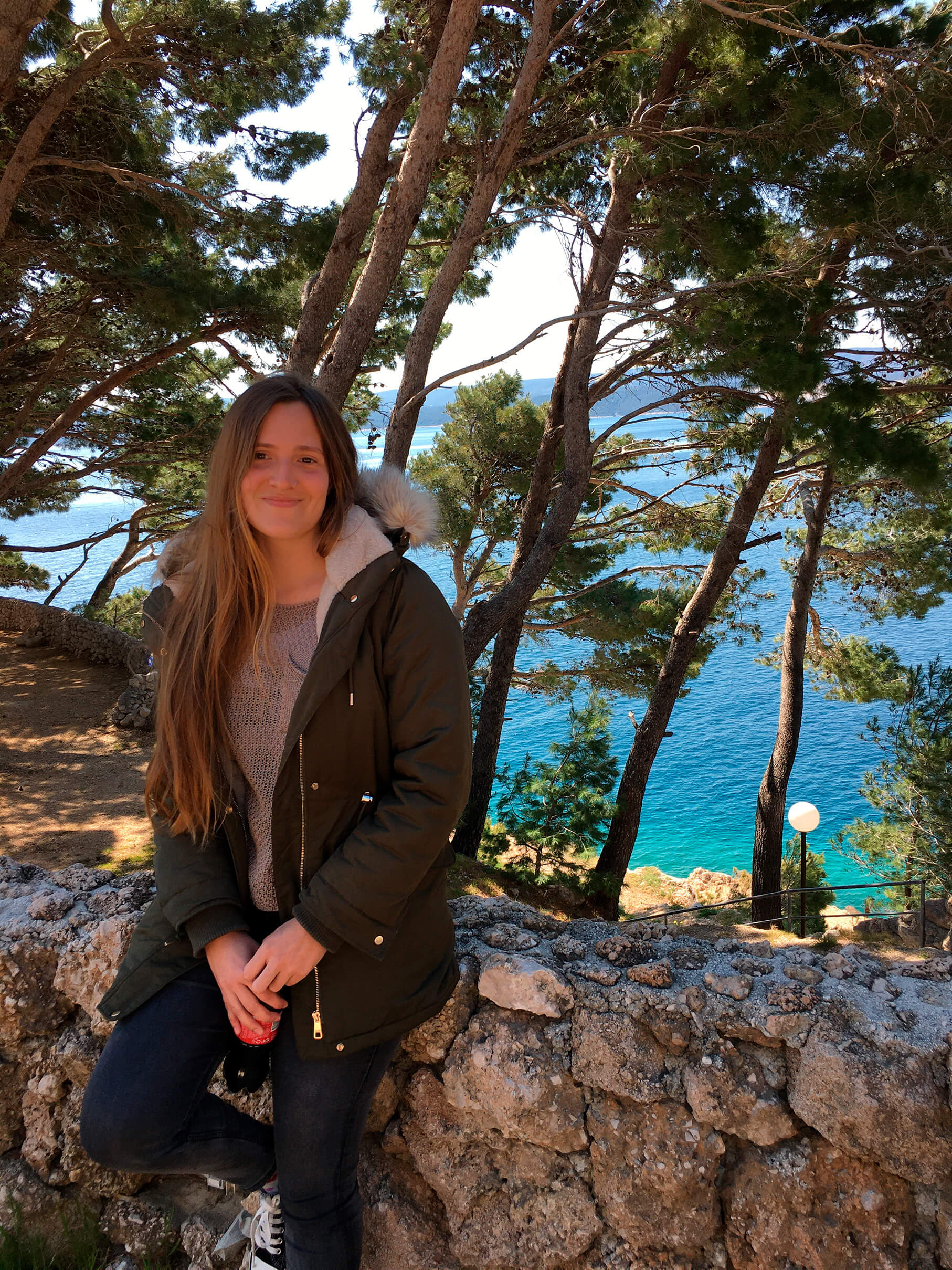
Nadia was born in Buenos Aires, Argentina, in 1994. All of her grandparents are Croatian. (Personal album)
What did you know about your relatives in Croatia?
It was always quite a complicated story because all of my dad's grandparents are Croatian and most of them had a very large family. I know a lot about my great-grandmother Ermenegilda Stanić because they were like twelve siblings and my grandmother went to Argentina because my great-great-grandfather arranged her marriage to a rancher so that she would have a good future in financial terms. When she arrived in Argentina she fell in love with my great-grandfather Duje Runje, a Croatian who worked as a laborer in that ranch. Obviously, it was something very strong for all of his family and my dad always talked to me about the two of them. He doesn't have much information about his paternal great-grandparents because my grandfather, Spiro Milevcic, died when my dad was four years old.
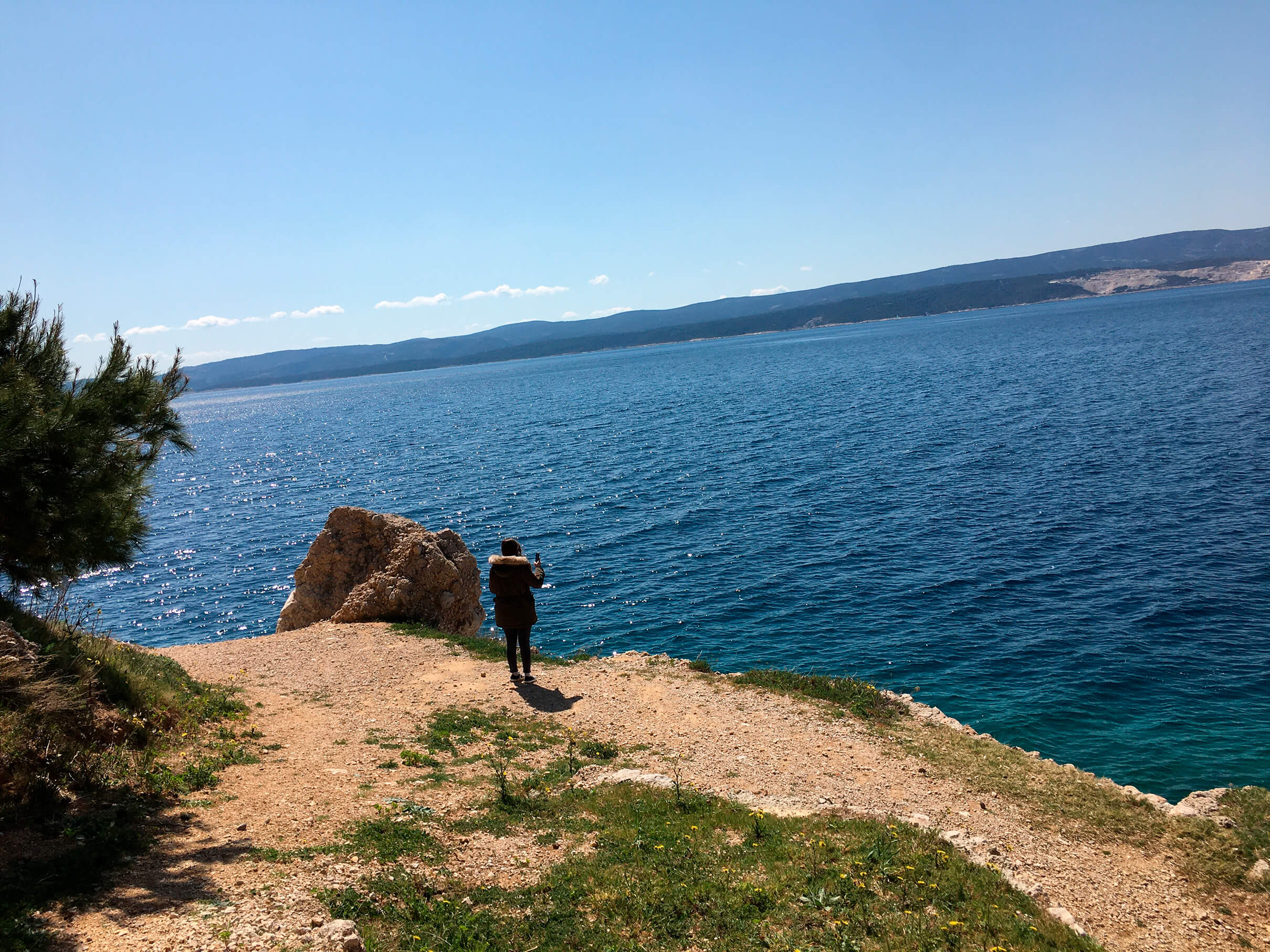
Nadia, who was living and working in Rijeka at the time, decided to travel to Dalmatia for vacation. She hadn't planned to find out about her family on the trip. (Personal album).
Did you have any expectations or plans to meet them?
Yes, my dad has a book that the Stanić family wrote about the descent of the twelve siblings. All the names appear there, including mine. The whole family has it and thanks to that my cousin contacted me from Croatia. It was just the same year that I won the scholarship. She told me that she lived in Rijeka and thanks to that I chose this city as the place where I was going to study for the Croatian language scholarship. This is how I met the descendants of one of the Stanić brothers, but I also knew that she had much more family in Croatia. Last year I didn't meet anyone else because most of them live in Dalmacija.
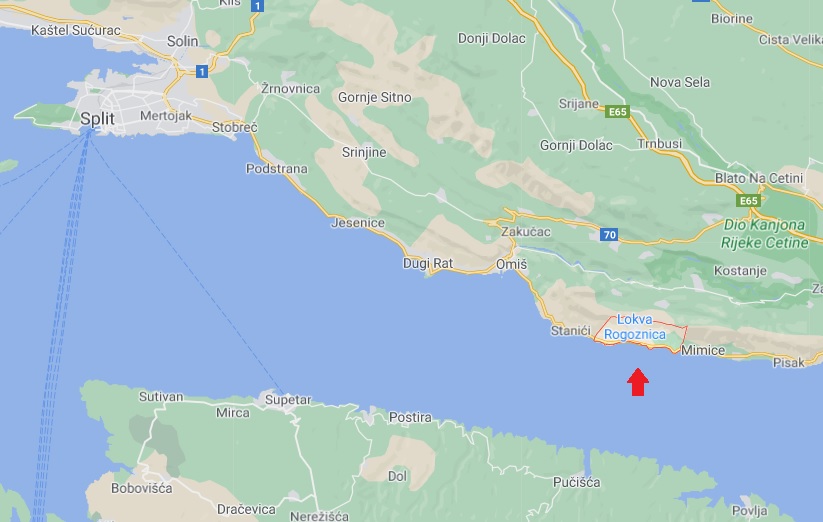
Lokva Rogoznica is a Dalmatian town, one hour away south of Split and 10 minutes away from Omiš. (Google Maps)
The day you met your distant relative, what were you doing and where?
Last month I went on vacation to Split and decided to go to Lokva Rogoznica, a town about an hour away because my great-grandmother was born there. My dad and my Croatian cousins had asked me to go meet him, but it was not my plan to look for anyone there, just take a couple of photos and see what the place was like.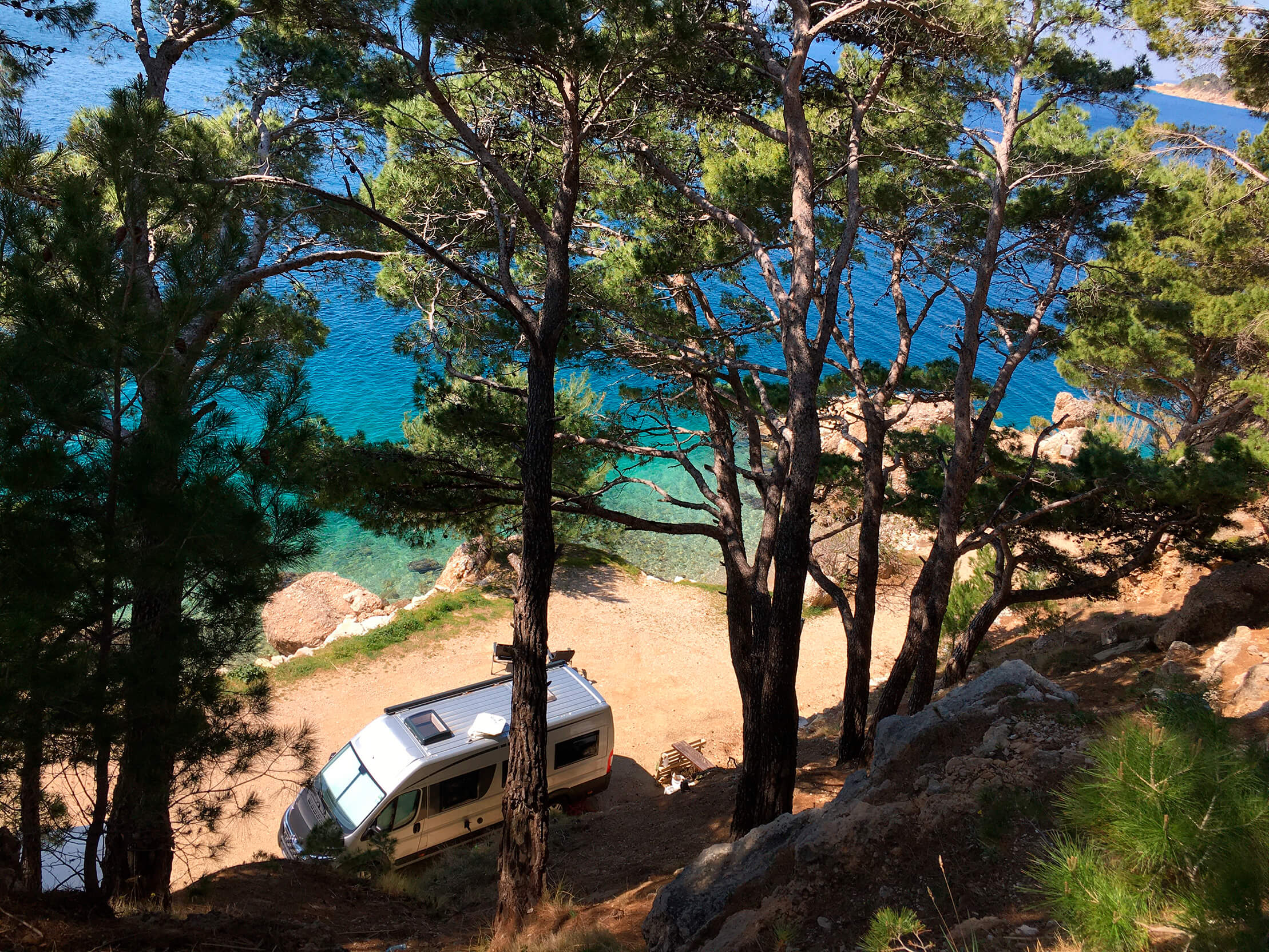
''La Sirena'' autokamp, in Lokva Rogoznica, the town where Nadia's family originated. (Personal album).
How was the encounter?
We stopped at a sign on the route to take a picture of me and we wanted to go down to the beach. I saw that there was a sign for an autokamp and that the beach was private. I remembered my cousins telling me that one of the Stanić was the owner of a campsite somewhere in Dalmacija, but I didn't know where. When we were about to go down to the beach, the owner of the campsite appeared and told me that the beach was private and that we couldn't enter. I don't know why it occurred to me that this could be my relative and I asked him if his last name was Stanić. He said yes and at that moment I told him that we were family because I was Ermenegilda's great-granddaughter. At that moment his face changed completely and he asked me if my great-grandmother had traveled to Argentina. When I said yes, he came closer to me and gave me a hug, and introduced himself as Milan Stanić.
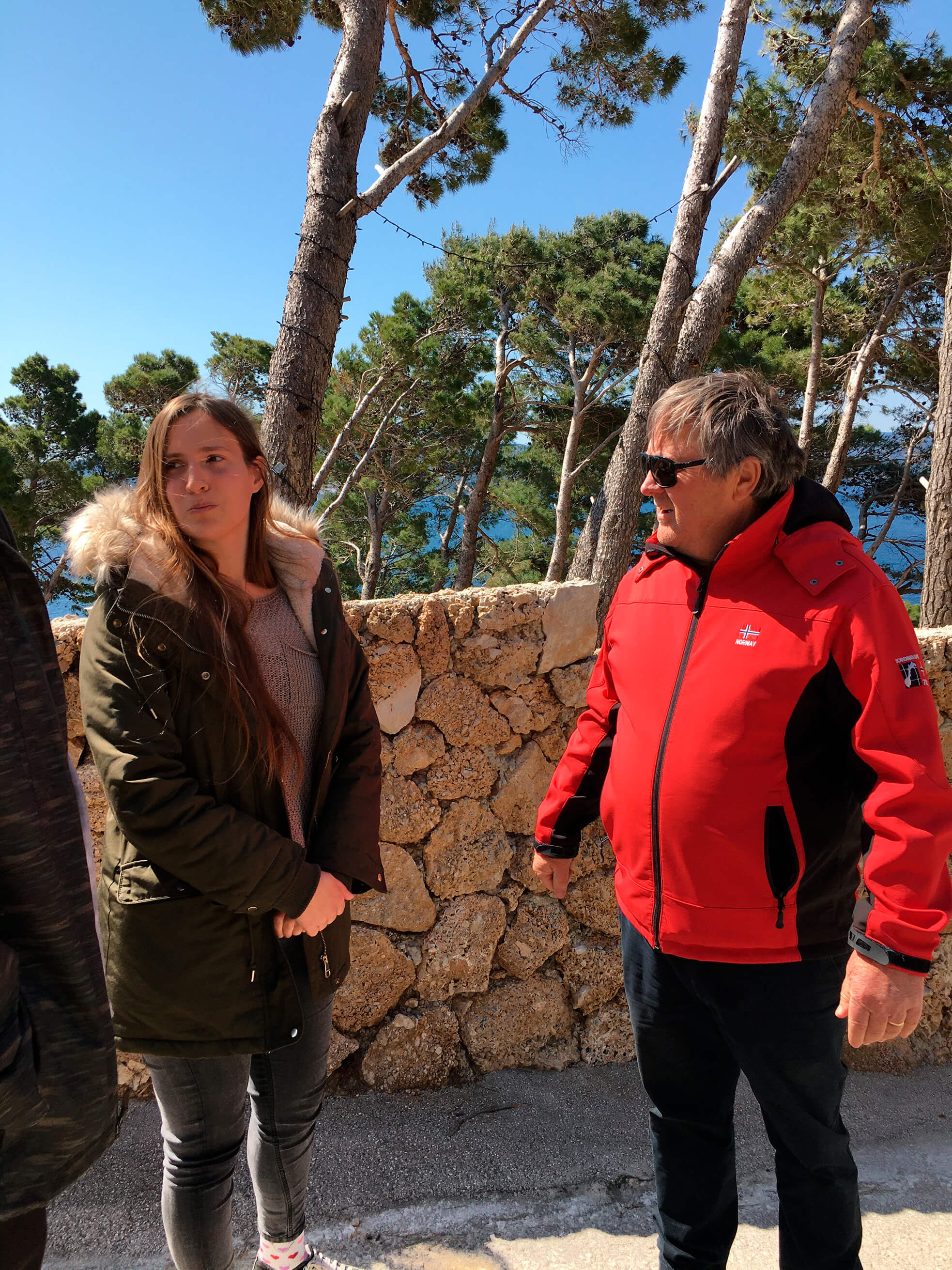
Nadia, soon after she met her distant relative, Milan Stanić. (Personal album)
How did you feel when the last names matched?
I felt very good and very strange at the same time. I was thinking of my dad because his desire was always to meet his Croatian family. I was the first person in my family to return to Croatia and from the first moment, I felt that it was my task to re-establish the bond with the other descendants. I also thought that I had come to take a photo and I ended up leaving with one more piece of my family. I like to think that it was something that had to happen and that it was time for us to meet.
What was his reaction when he found out?
He was very excited and very happy. From the first moment, he was very open with me and he introduced me to all of his family. That day we had lunch and dinner together. It was a very nice moment because all his daughters and his wife welcomed me very well and everyone was interested in talking to me.
Are you still in touch with him?
We don't talk every day, but I have his number and my cousin’s Facebook, so I can let them know the day I'm going to visit them again. They know that I am living in Rijeka and that I am working, but that at the end of the summer I am going to travel with my brother so that he can meet them too.
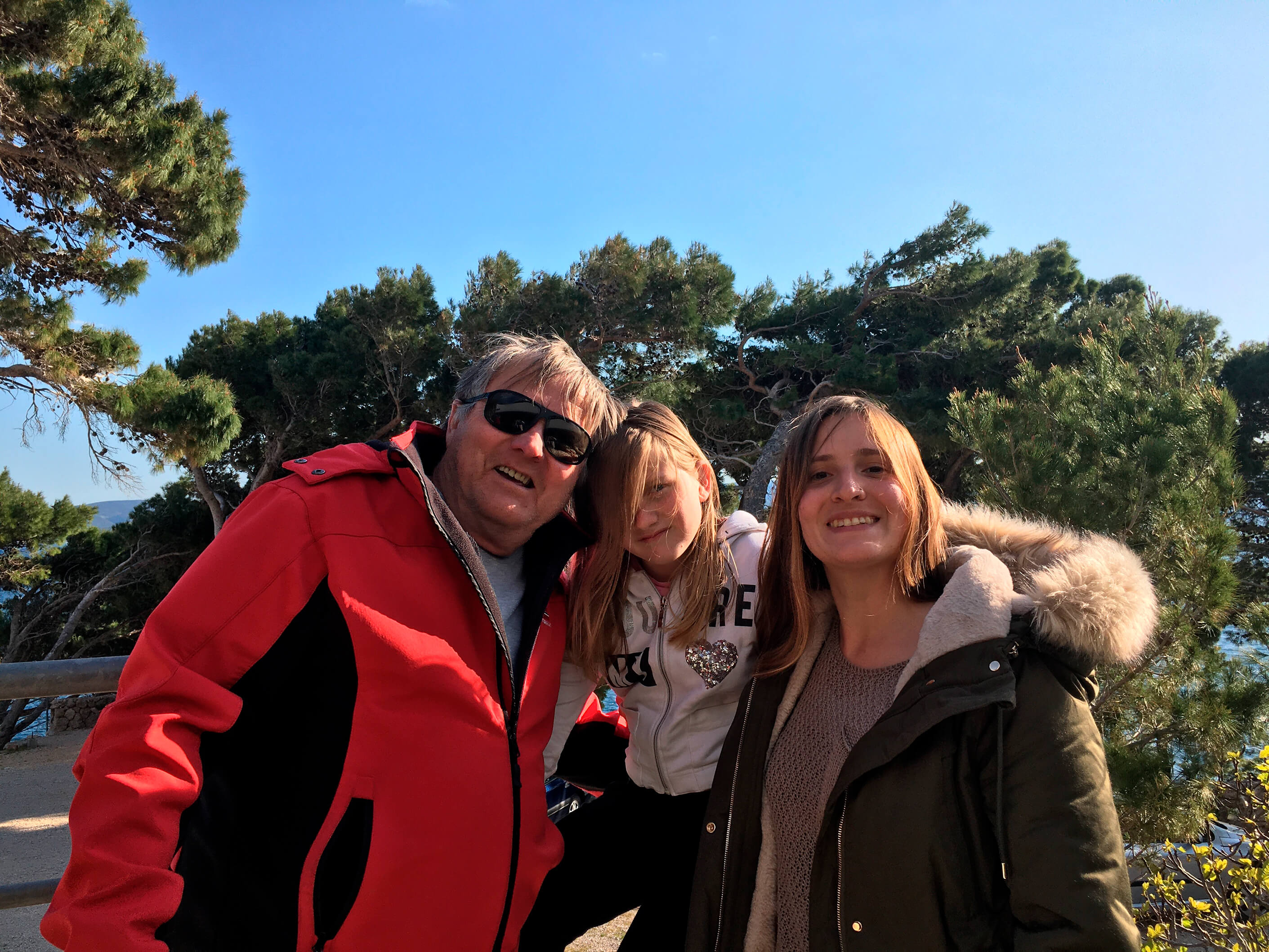
Milan, his daughter, and Nadia. (Personal album)
What is your goal in Croatia? Would you like to stay?
My idea of Croatia totally changed over time. When I arrived I planned to stay for only four months to study, but then I applied again for a second semester. I think that the decision to reapply for the scholarship was no longer motivated by the desire to know another culture, but was related to the fact that I felt good in Croatia and that I still did not want to go back to Argentina. Nowadays I am more established with the Croatian language and culture, but I cannot tell you that I want to stay permanently. I feel a strong connection to Croatia, but I also have my best friends and family in Argentina. Every day I miss my country and the people who live there and that is why I know that I will return to my country at some point. I sincerely feel that one half is here and another half is there in Argentina and for that reason, I would like to go and come back, spend some time in each country. I think it is a decision that is made every day. I can only tell you that today I choose to stay here.
The Croatian diaspora in South America is one of the largest in the world, and we at Total Croatia and Total Croatia News are committed to developing more on the subject in the coming months. If you belong to the Croatian diaspora in South America and want to share with us a story of reuniting with your distant relatives or your experience living in the land of your ancestors, you can send an email to This email address is being protected from spambots. You need JavaScript enabled to view it..
For more about the Croatian diaspora in South America, visit our dedicated page here.
Peru to Croatia: Returnee Perspective Two Years Later
April 17, 2021 - Two years ago I moved from Peru to Croatia. Thousands of returnees like me are hurting each year to leave our countries behind. But we have to look forward.
My parents taught me and my siblings from a very young age to value and appreciate the best of Peru: its people, our history, our culture, our traditions, our food, our ecosystems, and much more. That, no matter what, we should always speak with pride of our country when a foreigner asks us about it. In the same way, and as we have grown and had experiences that eventually proved it, we learned to recognize that there were not just one or two, but an immeasurable amount of problems in our country. And that we needed to recognize those them, criticize whoever we had to, and work on solutions to overcome those problems.
We have normalized a very harmful lifestyle, in which parents always say goodbye to their children when they go out to study, work, or with their friends with a ‘‘please, take care of yourself. Let me know when you arrive and let me know when you return’’. We have normalized discriminating against our compatriots based on where they live, the color of their skin, their way of speaking, and more. We have normalized reducing women to the minimum expression within society. We have normalized attacking gay or trans people and even make them invisible among the population. We have normalized that our natural resources should be exploited at the cost of the destruction of our environment and our Andean and indigenous communities. We have normalized electing politicians who represent self-interest and destructive ideals. We are now living in a country where everything is normal and terribly wrong at the same time.
The day came when I moved from Peru to Croatia. As I landed at the Franjo Tuđman Airport in October 2019 and looked down at the city of Zagreb, I thought about how I could put all my personal conflicts behind, but I couldn't help but think that I was leaving all that I had normalized for so long. It is part of who I am now. And not all of it was bad.
Six days ago, in the midst of one of our worst moments during the current pandemic, Peru held its presidential and congressional elections. I had distanced myself from political discussions about my country for the simple fact that I did not feel that I could really contribute something real while being so far from there, except for voting.
After an atypical electoral day, the electoral results seem to indicate that there will be a second round. Between whom? One for sure is a radical left candidate, named Pedro Castillo; and the other is Keiko Fujimori, recently released from pretrial detention on charges of corruption and money laundering, and daughter of dictator Alberto Fujimori.
Likewise, it is almost definite that our congress will be represented, in its majority, by ultra-conservative political parties. I followed most of the election day on social media, and I felt everyone's concern and confusion from a distance. It is true that Peruvians may be surprised one day in one way and the next in another, but something is very true and that is that difficult times are coming for women’s rights and the LGBTQ community.
It was during these recent weeks that I tried to imagine all the possible scenarios my country would face with each candidate, and I realized that despite all my attempts to assimilate that my life had already taken another course here in Croatia, I am still Peruvian and the problems of my friends, family, and compatriots are mine as well.
Most of the people I have met here in Croatia were surprised when I said that one of the reasons I came here was to flee the toxic environment of a country steeped in corruption, lack of opportunities, and insecurity on the streets. ''Peru to Croatia? Don't you know we have a corrupt country as well?''. I get that a lot.
I know that I could spend hours discussing and demonstrating that the political situation not only in my country but in the entire continent is much more serious, but I do understand what they are trying to tell me. In the same way, I see that there is also a very complex situation regarding the migration of young Croatians for better jobs and wages in Europe and even beyond. We are different, definitely, but not as much as I thought. There’s no perfect country, and the margin of improvement is huge.
It is when I process all this information that I can reach a very valuable conclusion, and it is about the responsibility we have as citizens of a country or immigrants, and even more so if we are both at the same time. And this is something that I have learned a lot in recent years, meeting several South Americans of Croatian descent here: we run away from something, and at the same time we do not run away at all. It doesn't matter how far away we are.
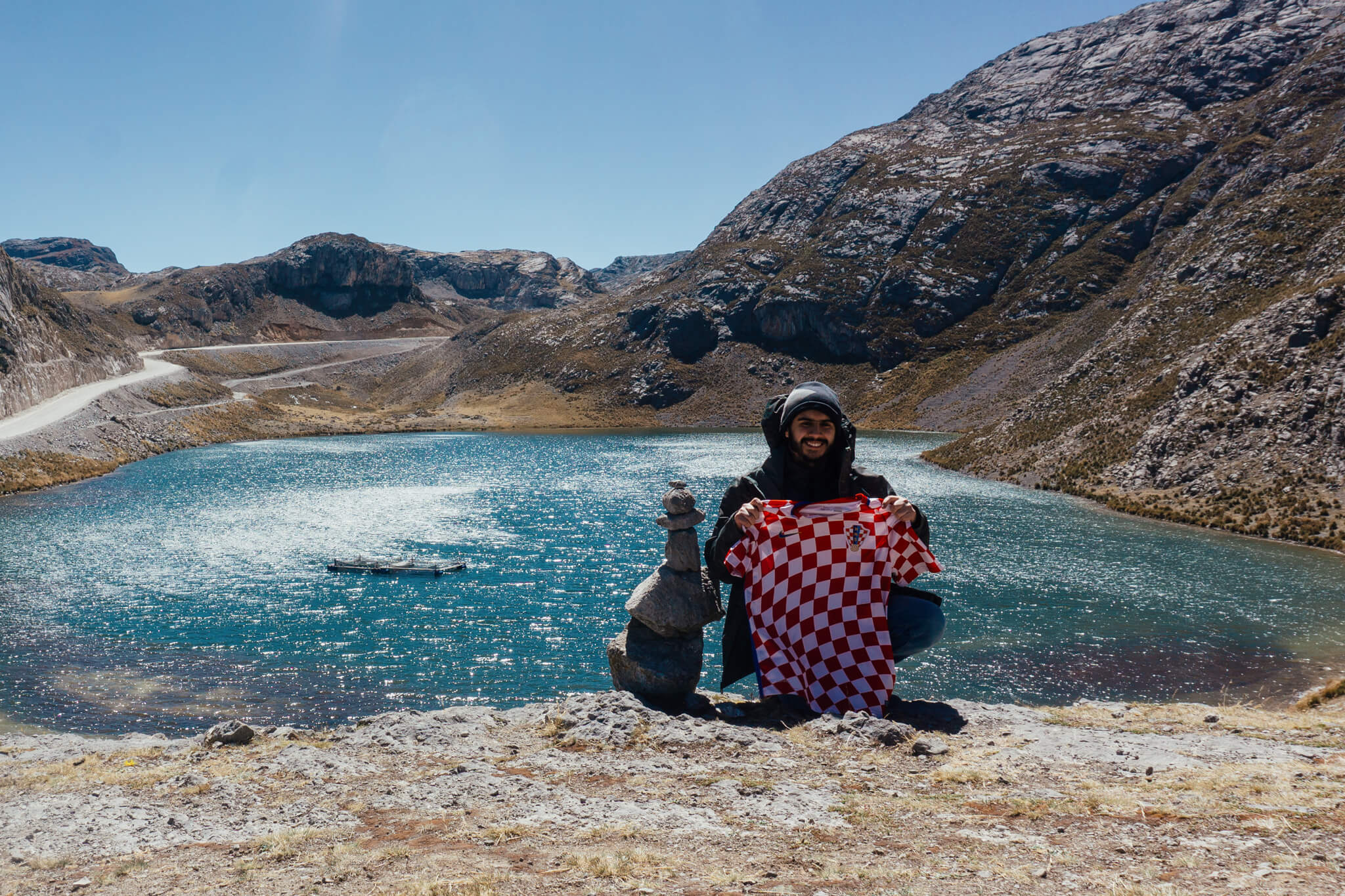
It is now that I think of Pero Kusijanović, our ancestor who left the small town of Mokošica and set out for Peru almost 150 years ago. I think of my grandmother, who left everything and went to Spain. I think of my aunts, who have lived in the United States for approximately 30 years. I think of the millions of Croats and Peruvians who have historically migrated to leave everything behind and seek a better future ahead. But is it worth keeping looking back once we made it out?
I think this was told to me by my psychologist a few years ago, but it's an analogy that I really appreciate, about the idea of moving forward and leaving something behind. He told me that life was like driving a car. We cannot drive just by constantly looking at the rearview mirrors, taking into account that we can hit someone or something in front of us. Just as we cannot drive without seeing them, because we could be hit by someone or something behind.
What I believe is that we have a great responsibility to raise the best of our countries whenever we have the opportunity, as well as to be critical and reflect on what is really wrong there in the distance. I know it is difficult to think about the idea of change or the way we can be part of it when the only thing that brings us closer to our country are social networks and the news, but it is a matter of being patient and being prepared when the opportunity arises. Be proud, be critical. Moving from Peru to Croatia distanced me physically from my country, but not entirely.
I cannot say, however, all of the above without finishing by saying that at the end of the day we are not just Peruvians, Chileans, Argentines, Bolivians, Venezuelans, Colombians, Ecuadorians, Brazilians, Uruguayans, Paraguayans, or Croats. As human beings, it is also important to ensure our happiness, our goals, our mental health, and the well-being of our families. Sometimes the best choice (sometimes the only choice) is to climb on a plane and fight it off elsewhere, even if it hurts. The decision of moving, migrating, and leaving everything behind is something we should never be ashamed of.
If there is one thing I am sure of, it is that I am happy to know that the place I went to was Croatia. Why? It is a country that has suffered as much as mine in the last 40 years. There’s so much to be done, but so much to be proud of. That way, I won't lose sight of where I come from, and the mission I still have to accomplish.
In the next weeks, TCN will be working on a series about the South American Diaspora in Croatia. If you're part of the South American Diaspora in Croatia and would like to share your story, send an email to This email address is being protected from spambots. You need JavaScript enabled to view it..
For more about the Croatian Diaspora, visit our dedicated page here.
Born in Zadar, Raised in Germany - Businessman Bringing Company to Croatia
As Poslovni Dnevnik/Darko Bicak writes on the 25th of June, 2019, although he's a German in his head, he's a Croat in his heart, as Ivan Barjašić says for and about himself, and he's grown particularly fond of the Croatian market, for which he has great plans as he brings his business over to Croatia.
Barjašić has been in the consultancy business for years now, and during his time working with two major German consultancy companies, he also met with the world of Croatian business, including Croatian companies like AD Plastik and Viro from Virovitica.
"It was precisely the decision of a German company in which I worked to withdraw from the Croatian market and cease cooperation with local clients was a turning point, which led to the establishment of Frontem Consulting last year, which has offices in Munich and Manchester, and soon I hope in Zagreb,'' explained Barjašić.
At one year old, this German businessman who was born in the Dalmatian city of Zadar moved with his family to Dusseldorf, Germany, and his private and business career has always been linked to two very similar and powerful European countries, who share the same work ethic and ideals - Germany and the United Kingdom.
In his youth, Barjašić dreamed about having a career as a professional athlete, and he even made several moves up the ladder in that world, but he soon realised that he wasn't made from the same material top football player are, and he devoted his time instead to studying economics and business in several universities across Germany and the UK, where he recently did his doctorate.
His consultancy team, Barjašić points out, is different from the big players already on the market owing to the fact that he's totally involved in the entire project he's working on, from defining goals to eventual implementation.
"Large consulting companies have a brand, and corporations lease them for prestige or to create an illusion that the corporation is working at the highest possible standards - you have an example of that and one huge company in Croatia which hired exactly that type of corporation to ''run its business'' and well... what happened, happened,'' stated Barjašić, likely referencing the Agrokor crisis, the mess of which still isn't fully cleaned up.
''It's often the case that big players don't have enough time. They usually do an analysis and study what they should do as a company and then they usually just stop there. People, especially in smaller companies, often lack the time or the professional knowledge to implement such studies. There's space for smaller and specialised companies like ours who have the knowledge, experience, and will to take over such projects and do them properly, all the way to the end. In our business, there's often a clause that in case of failure of the implemented project, fifty percent of contracted fees will be cut,'' added Barjašić.
He and his team have had the most experience in the automotive and food industry so far, but they do work on other projects as well. Their specialisation is the digitisation of business processes and the introduction of industry 4.0, something which Croatia so desperately needs across all sectors, from industry to state institutions.
"It's difficult to observe Croatia and Germany in a general manner. Of course, the whole system in Germany works better, but you do have very good and successful companies in Croatia and those that are not so good in Germany. Generally, when digitisation is in question, I can say that the way processes are done in Croatia are a generation below the way they're done in Europe, and here I see a great opportunity, both for the work of companies like ours, and for the development of Croatia's industry as a whole,'' stated this innovative Croatian-German consultant.
Make sure to follow our dedicated lifestyle and business pages for much more on doing business in Croatia, working in Croatia and investing in Croatia.


